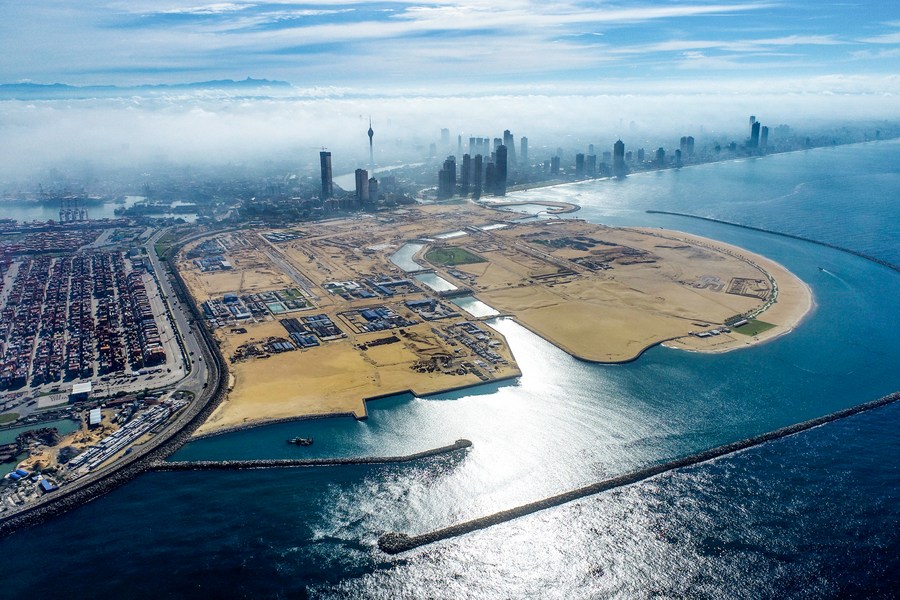The Chinese Communist Party (CCP) is increasingly taking a stand against corruption in the Belt and Road Initiative (BRI). Bribing foreign officials in securing projects has always been an unspoken BRI mechanism, but what’s become intolerable to the party is growing embezzlement of Chinese funds by Chinese officials.
It’s an extension of a domestic campaign to catch official self-enrichment that began more than a decade ago. Still, holding down that side of corruption in the BRI is helpful in promoting the idea that the international infrastructure initiative is transparent and efficient.
A review of Chinese documents reveals that the change began around 2021. Notably, officials of the party’s anticorruption agency, the Central Commission for Discipline and Inspection (CCDI), have been posted abroad with state-owned enterprises (SOEs) to monitor officials.
China projects the BRI as a global public good. However, it also facilitates China’s economic influence through economic integration and resource extraction. And by creating dependence on China abroad, it lifts the country’s geopolitical influence.
China floated the idea of a ‘clean’ BRI in the first Belt and Road Forum for International Cooperation in 2017. Since then, it has stepped up the narrative of its anticorruption measures being a fight against global corruption. That narrative downplays corrupt practices by Chinese companies in BRI projects.
Official discourse has framed corruption in the BRI as a human problem that’s pervasive in all societies, thereby presenting Chinese concerns about corruption as reflecting the efficiency of the Chinese political system. Officials also present anticorruption concerns in terms of guarding against possible wrongdoing amid massive investments, rather than pointing to existing corrupt practices.
However, it isn’t corruption in itself that has prompted Chinese authorities to step up monitoring and investigations.
China has criminal law provisions for prosecuting officials for bribing foreign officials. However, there’s a qualification to those provisions: only cases involving ‘improper commercial benefit’ can be tried, and that’s difficult to define in legal cases. As a result, despite numerous allegations and reports of bribes by Chinese companies to foreign officials, only a few such cases have been prosecuted. In 2023, a local court in Guangzhou sentenced two former officials of the state-owned China Railway Tunnel Group Co Ltd for bribing Singaporean officials and embezzling.
A few trials indicate that the CCDI’s efforts to tame corruption in BRI projects are aimed at those who embezzle Chinese money and resources, rather than those who bribe foreign officials.
China launched an anticorruption drive to hunt down bribe-taking officials at home in 2013. Xi Jinping’s call for a ‘clean’ BRI in 2017 was an extension of that: a response to corruption cases involving domestic officials and SOEs with links to BRI projects.
The government officials often acknowledge that the large sums of money spent on BRI projects naturally breed corruption. Several officials from companies and financial institutions engaged in BRI projects have been investigated, and the number of those investigations has dramatically increased since 2021.
Compared with earlier years of Xi Jinping’s rule, the number of corruption cases involving officials from SOEs and financial institutions has risen sharply. For example, the CCDI started investigating nearly 300 officials from such institutions in the 18 months after the 20th CCP National Party Congress in 2022, compared with around 400 during the first five years of the anticorruption campaign.
Several of those officials are senior executives of SOEs and financial institutions that have also invested in BRI projects. However, due to a lack of transparency in anticorruption trials, assessing corruption’s true extent and nature in the BRI is challenging. The high number of investigations of officials from SOEs operating domestically, which also have large stakes in the BRI, is an indication that policymakers are worried.
For example, in the past two years, the CCDI has investigated around two dozen senior officials of the Export and Import Bank of China and the China Development Bank, which are among the top lenders for BRI projects. Similarly, several officials from the COSCO group and its associated companies have been investigated since 2014. COSCO is the largest state-owned conglomerate involved in shipping and logistics.
In the past few years, China has signed a series of extradition treaties with BRI countries, to help investigate and bring corrupt Chinese officials to book. The CCDI has placed its officers within companies in BRI projects and organised regular joint inspections of projects with local authorities. The agency has been running corporate compliance courses for enterprises in the BRI since 2018 and introductory courses on the anticorruption system for officials from BRI countries.
The negligible number of people in BRI projects who have been tried for bribing foreign officials indicates that Chinese authorities are more worried about Chinese resources and money being embezzled rather than corruption generally. The anticorruption effort in the BRI is really just a case of taking the domestic campaign abroad.






